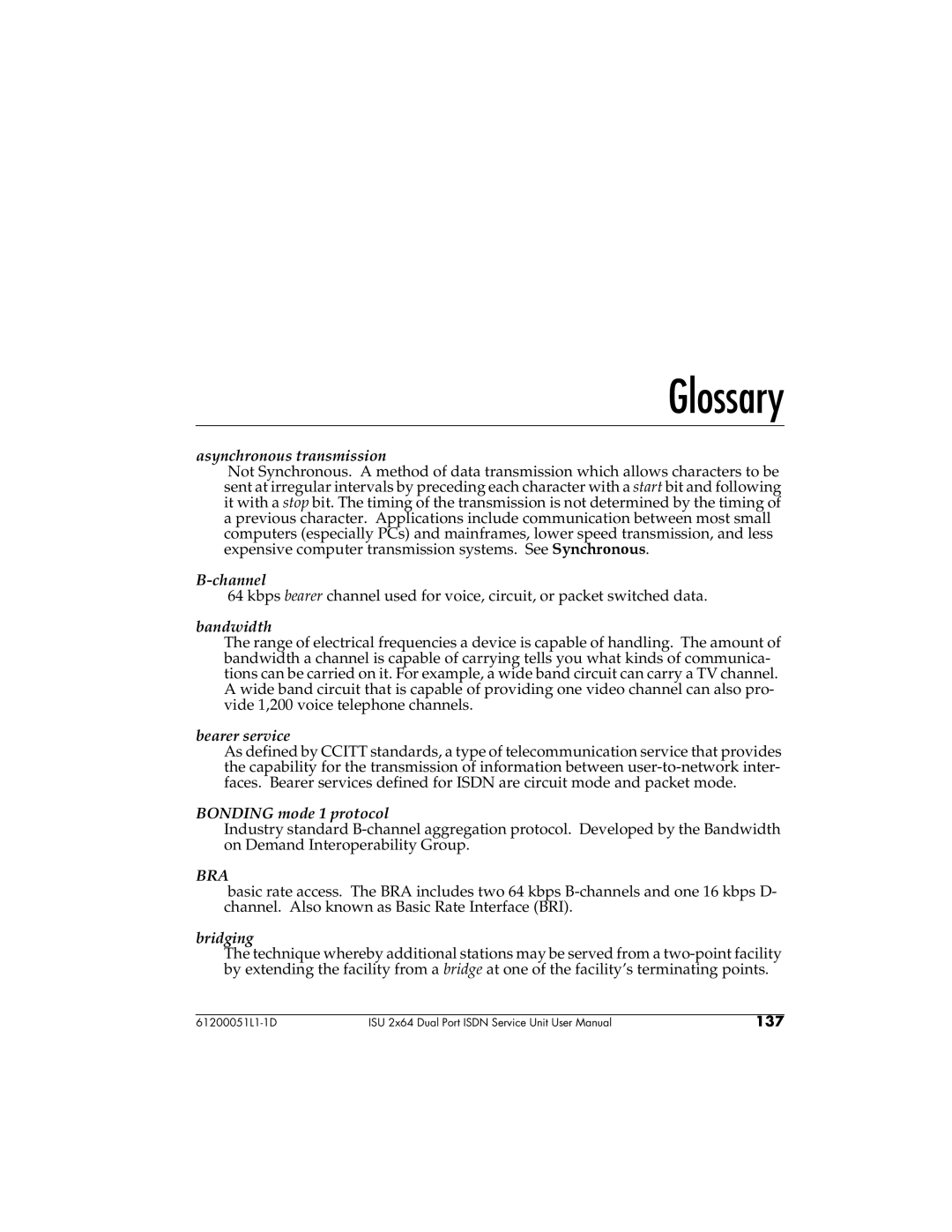Glossary
asynchronous transmission
Not Synchronous. A method of data transmission which allows characters to be sent at irregular intervals by preceding each character with a start bit and following it with a stop bit. The timing of the transmission is not determined by the timing of a previous character. Applications include communication between most small computers (especially PCs) and mainframes, lower speed transmission, and less expensive computer transmission systems. See Synchronous.
64 kbps bearer channel used for voice, circuit, or packet switched data.
bandwidth
The range of electrical frequencies a device is capable of handling. The amount of bandwidth a channel is capable of carrying tells you what kinds of communica- tions can be carried on it. For example, a wide band circuit can carry a TV channel. A wide band circuit that is capable of providing one video channel can also pro- vide 1,200 voice telephone channels.
bearer service
As defined by CCITT standards, a type of telecommunication service that provides the capability for the transmission of information between
BONDING mode 1 protocol
Industry standard
BRA
basic rate access. The BRA includes two 64 kbps
bridging
The technique whereby additional stations may be served from a
ISU 2x64 Dual Port ISDN Service Unit User Manual | 137 |
